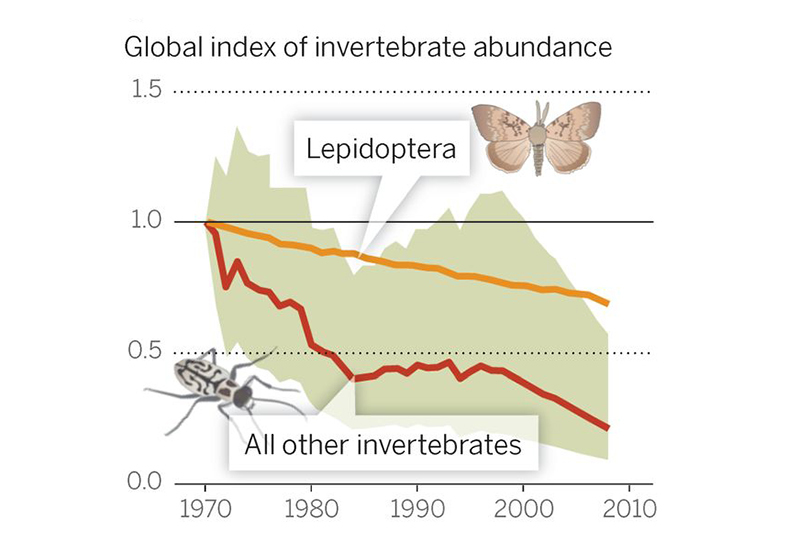Scientists have described 1 million species of insects so far, and estimate that at least 4 million species worldwide are still unrecorded. For people living in areas with ample wilderness and a plethora of biting mosquitoes that carry malaria and other diseases, a decline in insect populations might seem like an outlandish concern. But in areas with intensive industrialized agriculture, the drop in insect populations is worrying. So far, only the decline of honeybee populations has received widespread public attention, in large measure because of their vital role in pollinating food crops. The rest of the insect world has been widely ignored. Often insects are perceived as a nuisance or merely as potential pests. But while certain insect species, such as the European corn borer, undoubtedly cause enormous damage in agriculture, scientists emphasize the ecological importance of diverse and abundant insect populations. In Britain, an alliance of 22 publicly funded environmental research institutions has compiled a list of ecosystem services delivered by insects: “Over three-quarters of wild flowering plant species in temperate regions need pollination by animals like insects to develop their fruits and seeds fully,” the group says. The researchers emphasize that pollinating insects improve or stabilize the yield of three-quarters of all crop types globally — one-third of global crop production by volume. Germany’s Federal Agency for Nature Conservation stresses that insects are a major food source not only for birds, but also for bats and amphibians. Another important role is played by specialized insects such as long-legged flies, dance flies, dagger flies, and balloon flies, which prey upon pest species.Of particular concern is the widespread use of pesticides and their impact on non-target species. Many conservationists view a special class of pesticides called neonicotinoids — used over many years in Europe until a partial ban in 2013 — as the prime suspect for insect losses. The European Food Safety Authority is currently reviewing the ban. Other pesticides are widely used worldwide. “There are many indications that what we see is the result of a widespread poisoning of our landscape,” says Leif Miller, director general of the German chapter of BirdLife International. According to global monitoring data for 452 species, there has been a 45 percent decline in invertebrate populations over the past 40 years.
Source: BY CHRISTIAN SCHWÄGERL in Yale Environment 360, JULY 6, 2016
http://e360.yale.edu/features/insect_numbers_declining_why_it_matters
Christian Schwägerl is a Berlin-based journalist who writes for GEO magazine, the German newspaper Frankfurter Allgemeine, and other media outlets. He is co-founder of RiffReporter, a freelance cooperative, and author of The Anthropocene: The Human Era and How it Shapes Our Planet. Follow him on Twitter.

- Login om te reageren
